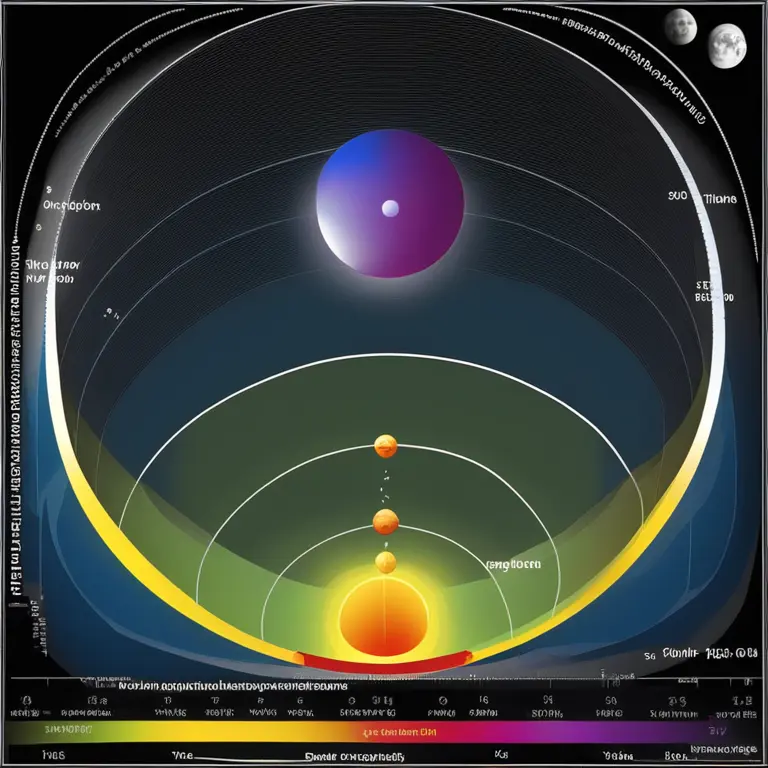
The Moon's Influence on Childbirth: Fact or Myth?
Explore whether the phases of the moon truly have an impact on labor and delivery in this insightful article.
article by Priya Deshmukh
The Eternal Question: Moon and Birth Rates
For centuries, people have pondered over celestial influences on human activity, and one of the enduring questions is whether the phase of the Moon affects the likelihood of going into labor. Anecdotes from midwives and nurses often suggest a bustling maternity ward during a full moon. However, scientific research on this matter has presented mixed outcomes. Does the glow of the night's celestial guardian truly hold sway over childbirth? Let's delve into the evidence that seeks to answer this age-old inquiry.

Gravitational Pull: Theoretical Underpinnings
The moon's gravitational pull is known to govern the tides, rising and falling with the waxing and waning of the lunar cycle. This has led to the theory that, since the human body is composed largely of water, the moon might similarly influence bodily functions. Proponents argue that the same gravitational forces could induce labor by affecting the amniotic fluid around the baby or by influencing the mother's body to initiate childbirth.

Reviewing Scientific Studies
Several studies have aimed to correlate lunar phases with birth rates, yet the results are often contradictory. Some research indicates a slight increase in spontaneous births during a full moon, while others find no significant link. Moreover, the studies that do report positive findings tend to show the effect size is subtle at best. Because of these disparities, the medical community does not widely embrace the idea of lunar-induced labor.

Astrological Perspectives in 2024 and Beyond
From an astrological standpoint, positions and transitions of celestial bodies are believed to hold profound influences on human destiny. In astrology, the Moon represents emotions, instincts, and the subconscious. When considering childbirth forecasts post-2024, astrologers might evaluate the Moon's sign, its aspects to other planets, and its phase to give insights into the potential onset of labor. Nonetheless, these predictions remain within the realm of belief and personal interpretation rather than empirical evidence.

Confounding Factors in Labor Onset
Childbirth is a complex process influenced by a multitude of factors including genetics, maternal health, baby's health, and environmental conditions. The perceived increase in births during full moons may be attributable to confirmation bias, where individuals recall events that support their beliefs while overlooking those that don't. It's also possible that the folklore itself may induce stress or excitement in expectant mothers, which could influence the timing of labor onset.
Rational Approach to Maternity Care
Given the lack of definitive evidence, healthcare professionals tend to focus on known medical indicators when predicting and managing labor. These include the baby's gestational age, maternal health indicators, and hormone levels, amongst other physiological signals. In the realm of science, while the moon's majesty is acknowledged, its direct influence on childbirth remains a hypothesis rather than an established fact.
Conclusion: Balancing Belief and Evidence
The moon’s potential impact on labor is a fascinating intertwining of mythology, anecdote, and science. As we progress beyond 2024, incorporating both technological advances and an openness to holistic perspectives, it's likely the debate will continue. For now, whether moonlight triggers the journey into the world remains a poetic possibility, one that science has yet to confirm or conclusively dispel.
Published: 1/19/2024
Modified: 1/19/2024
More predictions
Come back here soon to learn more about yourself and your future


Moon Phases: A Celestial Cycle Explored
Delve into the cyclical journey of the Moon, understand its phases, and explore their significance in astrology and personal insight.


The Lunar Cycle: Phases of the Moon
Delve into the celestial mechanics behind the moon's phases and how they influence the rhythm of life on Earth.


Your Moon Phase Match: Find Celestial Harmony
Discover which moon phase best aligns with your personality and how this celestial body influences your life journey.